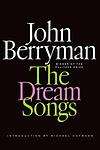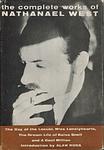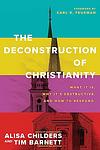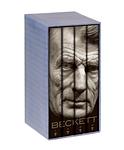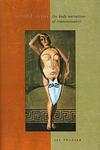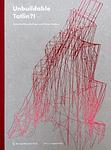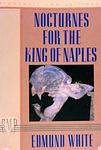The Greatest American, Irish, Chinese "Modernist, Fiction" Books Since 1950
Click to learn how this list is calculated.
This list represents a comprehensive and trusted collection of the greatest books. Developed through a specialized algorithm, it brings together 305 'best of' book lists to form a definitive guide to the world's most acclaimed books. For those interested in how these books are chosen, additional details can be found on the rankings page.
Genres
Modernist literature is a category of books that emerged in the early 20th century, characterized by a break from traditional literary forms and a focus on individual experience and perception. Modernist writers experimented with language, form, and structure, often using stream-of-consciousness narration and fragmented storytelling to convey the complexity and ambiguity of modern life. Themes of alienation, disillusionment, and the search for meaning are common in modernist literature, which reflects the cultural and social upheavals of the time. Overall, modernist literature is a challenging and thought-provoking genre that continues to influence contemporary literature and culture.
Countries
Date Range
Reading Statistics
Click the button below to see how many of these books you've read!
Download
If you're interested in downloading this list as a CSV file for use in a spreadsheet application, you can easily do so by clicking the button below. Please note that to ensure a manageable file size and faster download, the CSV will include details for only the first 500 books.
Download-
1. Waiting for Godot by Samuel Beckett
"Waiting for Godot" is a play that explores themes of existentialism, despair, and the human condition through the story of two characters, Vladimir and Estragon, who wait endlessly for a man named Godot, who never arrives. While they wait, they engage in a variety of discussions and encounter three other characters. The play is characterized by its minimalistic setting and lack of a traditional plot, leaving much to interpretation.
The 96th Greatest Book of All Time -
2. Rabbit, Run by John Updike
The novel follows the life of a 26-year-old former high school basketball star, who is dissatisfied with his current life. He impulsively leaves his wife and son and embarks on a journey in the hopes of finding a more meaningful existence. His decisions, however, lead to a series of tragic events that impact the lives of those around him. This mid-20th-century novel explores themes of freedom, responsibility, and the tragic consequences of impulsive decisions.
The 131st Greatest Book of All Time -
3. Gravity's Rainbow by Thomas Pynchon
Set during the end of World War II, the novel follows Tyrone Slothrop, a lieutenant in the U.S. Army, as he tries to uncover the truth behind a mysterious device, the "Schwarzgerät", that the Germans are using in their V-2 rockets. The narrative is complex and multi-layered, filled with a vast array of characters and subplots, all connected by various themes such as paranoia, technology, and the destructive nature of war. The book is known for its encyclopedic nature and its challenging, postmodernist style.
The 182nd Greatest Book of All Time -
4. Molloy by Samuel Beckett
"Molloy" is a complex and enigmatic novel that follows the journey of its eponymous character, an elderly, disabled vagabond, who is tasked with finding and killing a certain person. The narrative is split into two parts: the first is told from Molloy's perspective as he navigates his way through a strange and often hostile world, while the second follows a detective named Moran who is assigned to find Molloy. The novel is renowned for its challenging narrative structure, its bleak and absurdist humor, and its profound exploration of themes such as identity, existence, and the human condition.
The 241st Greatest Book of All Time -
5. The Third Policeman by Flann O'Brien
"The Third Policeman" is a darkly comedic and surreal novel about a nameless narrator who, after committing a murder to raise funds for his scholarly obsession with a bizarre pseudo-scientific theory, finds himself wandering in an eerie, nightmarish landscape. He encounters strange characters, including a pair of eccentric policemen who are obsessed with bicycles, and becomes embroiled in a series of increasingly absurd and ludicrous situations. The novel explores themes of existence, reality, and the nature of hell, with a twist ending that forces the reader to question everything they've read.
The 463rd Greatest Book of All Time -
6. The Unnamable by Samuel Beckett
"The Unnamable" is a complex, stream-of-consciousness narrative that explores themes of existence, identity, and the nature of reality. The protagonist, who lacks a clear identity, is trapped in a void and continually questions his existence and reality. As he grapples with his own consciousness, he attempts to tell his story, but constantly doubts and revises it, creating a cyclical, fragmented narrative. The novel is known for its challenging, abstract prose and its exploration of existentialist themes.
The 470th Greatest Book of All Time -
7. Wise Blood by Flannery O'Connor
"Wise Blood" is a novel about a young man named Hazel Motes, who returns home to Tennessee after serving in World War II and finds his religious beliefs shaken. He becomes a street preacher, founding the Church Without Christ to preach his message of faithlessness. The book explores themes of redemption, faith, and the struggle between belief and atheism as Hazel interacts with a variety of eccentric characters and faces his own internal battles.
The 486th Greatest Book of All Time -
8. V by Thomas Pynchon
"V" is a complex novel that intertwines two parallel narratives. One follows Benny Profane, a discharged U.S. Navy sailor involved in a group of bohemian artists and hooligans called the Whole Sick Crew, while the other narrative is a series of historical accounts researched by Herbert Stencil, who is on a quest to uncover the identity of an entity known only as V. The narrative oscillates between various global locations and time periods, including Egypt in 1898, Southwest Africa in 1922, and Malta in 1919, among others. The book explores themes of entropy, human connection, and the nature of identity.
The 574th Greatest Book of All Time -
9. Endgame by Samuel Beckett
Endgame is a one-act play that follows the lives of Hamm, a blind and unable to stand man, and Clov, his servant who cannot sit. They live in a single room, with Hamm's legless parents residing in dustbins. The characters are trapped in a cyclical existence where they constantly argue and contemplate life, death, and their own existence. The play is characterized by its minimalistic setting and bleak outlook on life, reflecting themes of existentialism and the human condition.
The 1278th Greatest Book of All Time -
10. Watt by Samuel Beckett
The novel is a darkly comedic and absurdist exploration of the human condition. It follows the eponymous character, Watt, as he serves as a domestic servant in a bizarre, isolated household. Throughout the narrative, Watt struggles to make sense of his surroundings, the odd behavior of his master, and his own existence. The book is filled with philosophical musings, wordplay, and surreal humor, offering a unique and challenging reading experience.
The 1431st Greatest Book of All Time -
11. Sleepless Nights by Elizabeth Hardwick
"Sleepless Nights" is a novel that weaves together memories, reflections, and fictionalized episodes to paint a portrait of a woman's life. The narrative is fragmented and non-linear, reflecting the protagonist's introspective journey through her past relationships, experiences, and observations. Set against the backdrop of various American and European backdrops, the book delves into themes of love, loss, identity, and the complexities of the human condition. The protagonist's musings are interlaced with vivid character sketches of the people who have drifted in and out of her life, creating a tapestry of poignant and evocative vignettes that capture the essence of her restless, contemplative existence.
The 1780th Greatest Book of All Time -
12. Krapp's Last Tape by Samuel Beckett
"Krapp's Last Tape" is a one-act play about an aging man who annually records a review of the past year of his life. On his 69th birthday, he listens to a tape from 30 years earlier, where he reflects on his life at 39, his lost love, and his isolation. The play explores themes of memory, regret, and the passing of time, with the protagonist's relationship with his younger self revealing a portrait of a man in decline.
The 1914th Greatest Book of All Time -
13. Eva Trout by Elizabeth Bowen
"Eva Trout" is a novel about a young, wealthy woman who struggles to find her place in society and understand her own identity. She leaves England to live in France, where she adopts a deaf-mute child in an attempt to avoid loneliness. The book explores themes of isolation, communication, and the effects of wealth on personal relationships. The protagonist's eccentric and often impulsive behavior leads to a tragic climax, shedding light on the consequences of her actions and decisions.
The 2018th Greatest Book of All Time -
14. The Dream Songs by John Berryman
The book is a collection of 385 poems that form a deep and complex portrait of the protagonist's troubled psyche, as he grapples with a myriad of themes including loss, despair, race, and the fragmented nature of the self. The narrative is characterized by its innovative structure, shifting perspectives, and a unique blend of high diction and colloquial language. The protagonist's journey is marked by moments of intense emotional turmoil and self-reflection, often conveyed through a dialogue between different aspects of his personality, as he seeks meaning and redemption in a chaotic world.
The 2809th Greatest Book of All Time -
15. Langrishe, Go Down by Aidan Higgins
"Langrishe, Go Down" by Aidan Higgins is a poignant and introspective novel that delves into the lives of the Langrishe sisters, Imogen and Helen, as they navigate their way through the complexities of love, loss, and longing in rural Ireland. Set in the 1930s, this beautifully written narrative explores the sisters' turbulent relationships with the men in their lives and their struggle to find their own identities amidst societal expectations. With vivid descriptions and emotional depth, the novel captures the essence of a bygone era and offers a profound exploration of the human experience.
The 3182nd Greatest Book of All Time -
16. Omensetter's Luck by William H. Gass
Set in a small Ohio town in the 1890s, the novel revolves around the enigmatic character Brackett Omensetter, a man whose mere presence seems to affect those around him in profound and inexplicable ways. The story is narrated from the perspectives of three different characters: the town's eccentric and paranoid physician, a reverend tormented by his lack of faith, and a local man who becomes obsessed with Omensetter. The narrative explores themes of religion, morality, and the nature of luck and fate.
The 3258th Greatest Book of All Time -
17. A Fable by William Faulkner
This novel is a World War I allegory where a Christ-like figure emerges within a French regiment, sparking a mutiny. The figure, a corporal, persuades his squadron to not attack in the bloody conflict, leading to their court-martial and execution. The narrative explores themes of war, morality, and the human spirit, with the corporal's actions causing a ripple effect, impacting the lives of soldiers, officers, and even a Jesuit priest.
The 3669th Greatest Book of All Time -
18. The Complete Works of Nathanael West by Nathanael West
This collection features the complete works of a renowned American author, known for his dark humor and social criticism. The book includes four novels and various other writings that depict the disillusionment and despair of the Great Depression era. His stories often revolve around aspiring artists and Hollywood dreamers, exploring themes of fame, illusion, and the American Dream. The author's unique style blends satire and tragedy, creating a distinct voice in 20th-century American literature.
The 4151st Greatest Book of All Time -
19. How It Is by Samuel Beckett
The book is a challenging and experimental novel that delves into the fragmented and often bleak inner monologue of its protagonist, who finds himself lying in the mud, in a dark and indeterminate space. The narrative is characterized by its repetitive and disjointed style, reflecting the protagonist's sense of dislocation and his struggle to make sense of his existence. Through sparse and poetic language, the novel explores themes of solitude, identity, and the human condition, as the protagonist interacts with other vague figures in this desolate landscape, questioning the nature of reality and his own consciousness.
The 4780th Greatest Book of All Time -
20. The Complete Dramatic Works Of Samuel Beckett by Samuel Beckett
This book is a comprehensive collection of Samuel Beckett's dramatic works, showcasing his unique style and exploration of human existence. From the iconic "Waiting for Godot" to lesser-known plays, Beckett's works delve into themes of despair, absurdity, and the human condition. With his minimalist approach and masterful use of language, Beckett's plays continue to captivate and challenge readers, offering a profound reflection on the complexities of life.
The 6109th Greatest Book of All Time -
21. Three Novels by Samuel Beckett
This collection brings together three groundbreaking works by a pioneering figure in modernist literature, each novel exploring themes of isolation, communication, and existence. The narratives are characterized by their sparse, minimalist prose and their focus on the interior lives of their protagonists, who often grapple with the absurdity of their situations and the futility of their actions. The author employs innovative literary techniques to delve into the consciousness of these characters, presenting fragmented and disjointed narratives that reflect the dislocation and alienation of the human condition. Through these works, the author challenges traditional narrative structures and invites readers to confront the complexities of language, meaning, and the struggle to find purpose in an indifferent universe.
The 7168th Greatest Book of All Time -
22. Second Skin by John Hawkes
In "Second Skin," readers are plunged into the chaotic life of Skipper, a retired naval officer and teacher, as he navigates a series of tragic and surreal experiences on a remote island and elsewhere. The novel weaves through time, exploring Skipper's troubled relationships with his daughter and his deceased wife, as well as his attempts to find redemption and meaning in a world that seems to be disintegrating around him. The narrative is marked by its dark humor, complex symbolism, and an exploration of themes such as identity, loss, and the human capacity for self-deception and resilience.
The 7168th Greatest Book of All Time -
23. Tatlin! by Guy Davenport
"Tatlin!" is a collection of imaginative short stories that blend historical fact with fiction, exploring the lives and works of various artists and intellectuals. The narratives are rich with allusions and delve into the creative processes of these figures, including the titular Russian avant-garde architect and designer. The book weaves together themes of art, invention, and the complexities of human experience, presenting a tapestry of intertextual vignettes that challenge the boundaries between reality and imagination. Through its lyrical prose and intricate structure, the collection offers a unique meditation on the nature of genius and the eternal quest for artistic innovation and expression.
The 7168th Greatest Book of All Time -
24. Forgetting Elena by Edmund White
The novel presents a surreal and allegorical tale set on an enigmatic island, where the amnesiac protagonist struggles to navigate a society governed by intricate and arbitrary social codes. As he attempts to reconstruct his identity and understand his past, he encounters a cast of eccentric characters who embody the peculiar customs and rituals of the island's culture. The narrative, rich with metaphor and satire, explores themes of memory, identity, and the search for self amidst the bewildering constraints of a highly stylized community.
The 7168th Greatest Book of All Time -
25. Nocturnes For The King Of Naples by Edmund White
The book is a lyrical and introspective novel that explores the themes of love, loss, and desire through the lens of a man reflecting on his past relationship with an older, enigmatic lover. The narrative unfolds in a series of evocative vignettes and musings, blending reality with fantasy, as the protagonist grapples with the enduring impact of this deeply transformative affair. Set against the backdrop of various locations, including Naples, the novel delves into the complexities of memory and the haunting nature of longing, weaving a tapestry of emotion and poetic imagery that captures the essence of romantic yearning and the pain of its inevitable dissolution.
The 7937th Greatest Book of All Time
Reading Statistics
Click the button below to see how many of these books you've read!
Download
If you're interested in downloading this list as a CSV file for use in a spreadsheet application, you can easily do so by clicking the button below. Please note that to ensure a manageable file size and faster download, the CSV will include details for only the first 500 books.
Download












